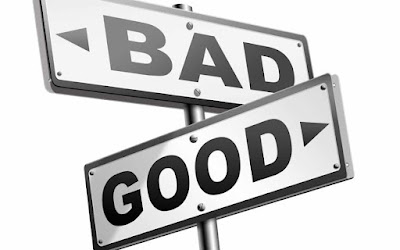Featured
- Get link
- X
- Other Apps
What is Being a “Progressive Christian” Mean?
A sociologist named Dr. George Yancey has been studying the differences
between progressive Christians and conservative Christians (terms that shouldn’t
be used in describing members of Christs family but for the purpose of this
article they are used to highlight differences in believers that are living
under a false gospel) for several years. The findings of his research will be
published in a book coming out in the summer of 2021. The book is going to be called One Faith No Longer:
The Transformation of Christianity in Red and Blue America.
He's taking a look at the differences between these two
groups from a theological perspective and a political perspective. This article
that was published on The Gospel Coalition is very interesting. It analyzes the
beliefs from a more political perspective.
In defining these two different categories Dr Yancey
describes conservative Christians as those who believe that the bible is God's
inherent word and that Jesus is the only path to salvation. By contrast he
identifies progressive Christians as those who do not believe that the Bible is
the inerrant word of God or that Jesus is not the only path to salvation. The
article points out that there's been much criticism over conservative Christians
entangling themselves in politics. Conservative Christians have been under fire
for their political activism however, this article points out that progressive Christians
are not without their political entanglements. In fact, one of the findings of
the study is that progressive Christians actually prioritize political values
more than conservative Christians. It also shows that political conformity is more
important for progressive Christians than it is for conservative Christians.
Dr. Yancey lays out three reasons why he believes
progressive Christians are actually more political than conservative Christians.
The first reason is different framework worldviews. Progressive Christians and
conservative Christians are operating from completely different value systems
or priority sets. He points out that values like inclusion and tolerance and
social justice are linked to humanistic values that are usually found among
highly educated political progressives and this would be regardless of whether or
not they're Christians. For progressive Christians those values are foundational
of how they understand reality and even approach questions such as meaning. For
conservative Christians the way they approach reality and those deep questions
of meaning are largely going to be informed by the Bible specifically a
historical biblical understanding.
The second reason he gives for why he thinks progressive Christians
are more political than conservative Christians is that they have different
images of Jesus. Progressive Christians tend to focus on the actions and the
teachings of Jesus that reinforce their values of tolerance and inclusion which
they see as examples of love whereas for conservative Christians, Jesus is
interpreted through the historical biblical framework. They have less of a
problem seeing Jesus be a little more intolerant of religious hypocrites at
times even excluding unrepentant people from salvation.
The third reason he gives for why he thinks progressive Christians
are more political than conservative Christians is that there's a very
different view of the bible between the two groups. Progressive Christians tend
to not see the Bible as the inerrant word of God but rather as a book of wisdom.
They question biblical hermeneutic interpretations of the scriptures. Conservative
Christians tend to view the Bible as the inerrant word of God and authoritative
for their lives.
Another finding of the study is that conservative Christians
are more likely to create sort of out groups based on theology rather than
politics whereas progressive Christians are more likely to create out groups
based on politics rather than theology. Progressive Christians are more likely to
accept non-Christians as part of the body of Christ which is a part of their
values of tolerance and inclusion except the article notes this tolerance
however does not extend to conservative Christians. Which through their
progressive lens they see as not practicing the inclusion they so highly value.
Progressive Christians are less likely than conservative Christians to have
different types of believers and friends. Progressive Christians are more
likely to reject conservative Christians than conservative Christians are to reject
progressive Christians. Progressive Christians envision conservative Christians
as barriers to the type of inclusion and tolerance they want in society.
Toward the end of the article Dr Yancey points out that many
people have rightly criticized the entanglement of conservative Christians with
politics but then he goes on to note that progressive Christians stress political
values more than conservative Christians yet there is less criticism of their
activism.
He closes out the article by saying that at the very least
we should dispense with the stereotype that it's only conservative Christians who
impose their faith on politics.
Popular Posts
How should followers of Jesus Christ vote in the USA?
- Get link
- X
- Other Apps
The Moral Argument for God’s Existence.
- Get link
- X
- Other Apps



Comments
Post a Comment